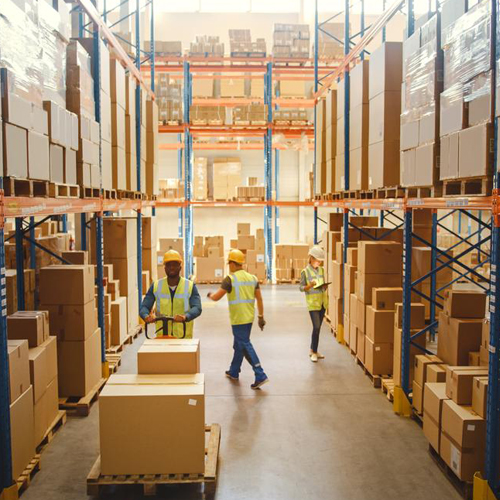In the process of transporting goods internationally, in addition to sea freight fees, the shipper also must pay several other fees including Local Charges. So, what is a local charge? How to Calculate Local Charge? And some common types of Local Charge. Let’s find out the detailed information in the article below.
 Local Charge is a common fee in international shipping
Local Charge is a common fee in international shipping
What is Local charges?
Definition of Local charges
Local charges (abbreviated as LCC) are local fees incurred during the transportation of goods, usually related to services at ports or airports. These fees are usually not included in the main freight rate and will be charged separately to the customer.
Meaning of Local charges
LCC fees are collected because, in the transportation market, fee items are public. Therefore, transportation companies separate transportation fees and other fees. These costs often arise from external factors such as port congestion, exchange rate fluctuations, fuel price increases, and fees related to third parties such as ports, warehouses, etc. This helps carriers adjust their freight rates flexibly according to the market without changing surcharges, ensuring the independence between these two types of fees.
Role of Local charges in the transportation and logistics industry
LCC plays an important role in the transportation and logistics industry, with the following specific functions:
- LCC is collected to offset costs incurred at the port during the transportation of goods, including activities such as loading, unloading, assembling and storing containers, customs declaration, etc.
- LCC helps regulate the freight market and promotes competition in freight rates among shipping lines.
- LCC is an important factor affecting international freight rates. Therefore, shippers need to understand how to calculate LCC fees to accurately estimate the total cost of their shipments.
Common types of Local charges
Below are some common Local charges
Types of Local charges for imported goods
CCF (Container Cleaning Fee)
This fee ensures that the container is thoroughly cleaned and ready for the next shipment, preventing cross-contamination or the growth of mold, bacteria, and other contaminants. CCF rates may vary depending on the type of cargo being shipped, the condition of the container after unloading, and special cleaning requirements.
DEM/DET (Demurrage / Detention)
DEM/DET (Demurrage / Detention) fees are fees incurred when using a container beyond the permitted time:
- Demurrage: Fee paid for keeping a container at the port beyond the time limit after unloading.
- Detention: Fee paid when the container has been removed from the port but not returned to the shipping line on time.
CFS (Container Freight Station Fee)
Charges for less than container load (LCL) handling services at the container terminal, including consolidation, separation, and delivery of goods from containers.
Types of Local charges for exported goods
THC (Terminal Handling Charge)
A charge to cover container handling and loading operations at the port, including lifting and lowering containers from ships and moving them within the port area.
Bill of Lading Correction Fee (B/L Fee)
Fee charged when there is a request to edit information on the Bill of Lading after it has been issued.
AMS (Advance Manifest System)
A fee is charged to cover the declaration of cargo information before the vessel arrives at the port, as required by the customs authority of the importing country to ensure security and compliance.
Other surcharges
BAF (Bunker Adjustment Factor)
A fuel surcharge is imposed to compensate for fluctuations in oil prices in the transportation of goods by sea. It is called BAF in Europe and EBS (Emergency Bunker Surcharge) in Asia.
PSS (Peak Season Surcharge)
A surcharge applies during peak season to compensate for increased demand for shipping and higher costs during this time.
CAF (Currency Adjustment Factor)
A surcharge is applied to adjust for exchange rate fluctuations, helping to compensate for changes in currency values.
LSS (Low Sulfur Surcharge)
Surcharge applies to compensate for the cost of using fuel containing less sulfur, by environmental regulations.
How to calculate Local charges
Each fee will have a different calculation method, specifically:
- THC (Terminal Handling Charge) = (Number of containers x THC unit price)
- CFS (Container Freight Station) = (Number of containers x CFS unit price)
- AMS (Advance Manifest System) = (Number of containers x AMS unit price)
This calculation method is used similarly to other surcharges.
For example: An export shipment from Vietnam ➜ the US includes 20 20-foot containers. The THC fee at Hai Phong port is 150 USD/container, the CFS fee at Cat Lai port is 50 USD/container, and the AMS fee is 10 USD/container.
- How to calculate THC fee:
THC = (Number of containers x THC unit price)
THC = 20 x 150 = 3000 USD
- How to calculate CFS fee:
CFS = (Number of containers x CFS unit price)
CFS = 20 x 50 = 1000 USD
- How to calculate AMS fee:
AMS = (Number of containers x AMS unit price)
AMS = 20 x 10 = 200 USD
Thus, the total Local charges for imported goods for this shipment is: THC + CFS + AMS = 3000 + 1000 + 200 = 4200 USD
Through this article, SSR Logistics hopes that customers have an overview of Local Charges. To explore more diverse knowledge in the field of logistics, please visit our Logistics Knowledge section.
SSR looks forward to becoming your reliable logistics partner, providing optimal solutions for your import and export business. If you have questions about our services, please contact us for specific advice.
With our experienced team, extensive network and flexible shipping & customs solutions, SSR Logistics is confident to deliver excellent services to our clients.
Businesses that need customs and import-export, please contact SSR Logistics via Hotline (+84) 911 988 484 or leave your information here for specific advice.
With a modern warehouse system and experienced transportation staff, SSR Logistics provides a variety of additional services such as: customs clearance, warehouse leasing, domestic transportation, international transportation by sea and air, and international express delivery.









